Bob Dietz/Asia Program Coordinator
Bob Dietz, coordinator of CPJ’s Asia Program, has reported across the continent for news outlets such as CNN and Asiaweek. He has led numerous CPJ missions, including ones to Afghanistan, Pakistan, the Philippines, and Sri Lanka. Follow him on Twitter @cpjasia and Facebook @ CPJ Asia Desk.

Government, media can limit risk to journalists
The fighting along the border in Pakistan is a classic counter-insurgency: a large military force trying to oust an entrenched group from its base. Such armed conflict will always be risk-filled—especially for local journalists—but government leaders, military officials, and media executives can take basic steps to improve security.
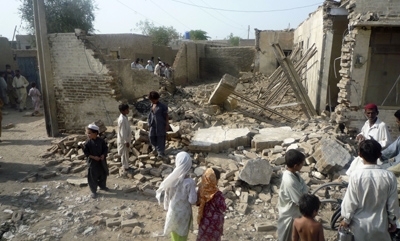
In Pakistan’s frontier, echoes of a 2006 murder
Local reporters like those in Federally Administered Tribal Areas, Swat, and Mingora are crucial to accurate, fully formed news coverage. Their importance was evident in August, when reports began to emerge that prominent Taliban leader Baitullah Mehsud had been killed by a U.S.-launched missile apparently fired from an unmanned drone over South Waziristan in the…
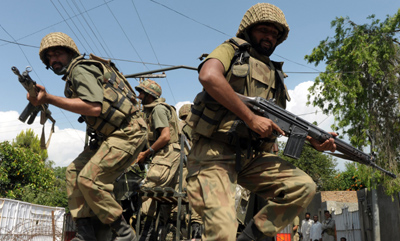
Value, ‘collateral damage’ as journalists embed
During the height of the Pakistani military’s assault on militants, hundreds of local journalists were forced to flee the Swat Valley and neighboring areas. Coverage of the fighting was left in large part to Pakistani reporters from outside the region who had embedded with the military. These journalists faced their own set of challenges.
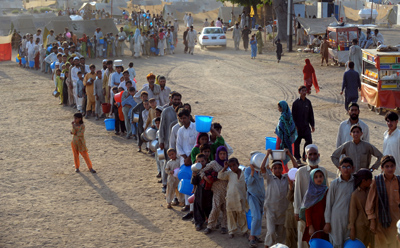
As combat raged, local reporting was stifled
Yesterday, I reported on the plight of Behroz Khan and Rahman Bunairee, two Pakistani journalists whose homes were destroyed by militants. Many other journalists in the North West Frontier Province, or NWFP, faced grave dangers and were forced to flee, undermining independent reporting in the region. The same early July night that Khan and Bunairee’s homes…
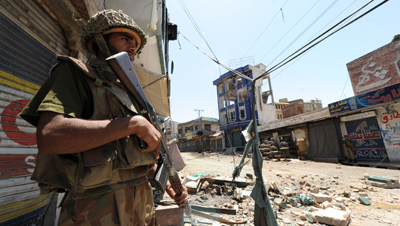
In Pakistan conflict, grave risks for reporters
The September 30 Daily Times in Pakistan headlined a story “Peace being gradually restored in Swat,” although daily skirmishes continue between the military and militants. A few days earlier, a massive car bomb in the heart of Peshawar killed at least 10 people and left some 70 wounded, while an explosion destroyed a police station…
Afghan journalists call for justice in Munadi’s death
A large group of Afghan journalists met on Sunday in Kabul. They were angry about the death of New York Times journalist Sultan Mohammed Munadi in the September 9 British-led rescue attempt to free him and Times’ reporter Stephen Farrell, who survived unharmed, from kidnappers. After the meeting, they sent me a list of demands…
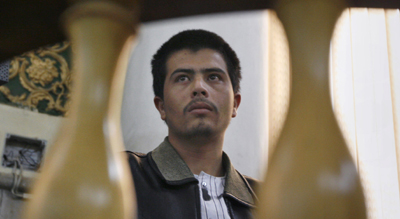
Amid woes, Kambakhsh release a moment to celebrate
We received great news that Parwez Kambakhsh, a 24-year-old Afghan journalist and student who was unjustly convicted of blasphemy and serving a 20-year term, was released from prison. But happiness over his release—the product of intensive advocacy by CPJ and others—is tempered by deteriorating press conditions overall in Afghanistan.
At Tolo and other Afghan media, pressure from all sides
With elections due on August 20, pressure is mounting on Afghan journalists, and it’s coming from all sides. The International Federation of Journalists helped organize a meeting in Kabul last week to draw the fractious journalists’ community together; there are four or five competing organizations, all vying for recognition, dominance, and funding. In March, the…